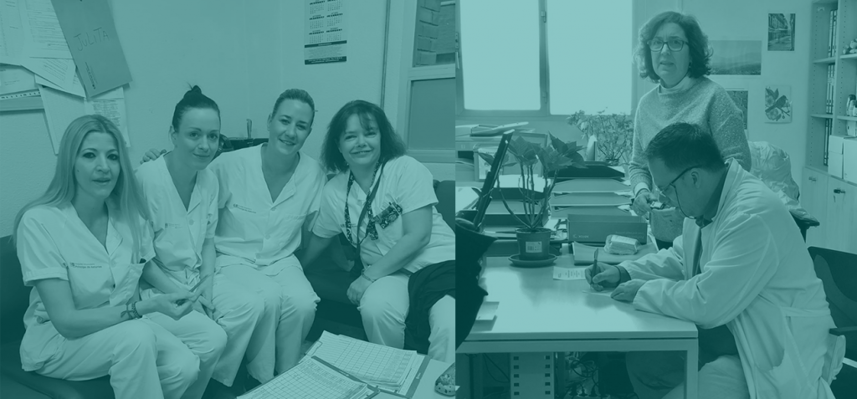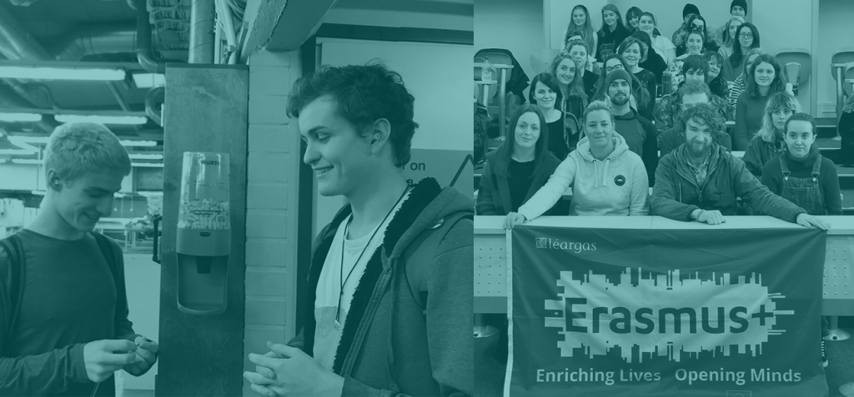How to prepare for Erasmus+ VET placements, Part 2
 In the second of two posts with tips on preparing and managing Erasmus+ VET placements, Elva Duggan of our Client Services team summarises insights that were shared by project coordinators at a recent Léargas workshop. The first post concentrated on preparations before the students leave for their placements. This post looks at the placements themselves and risk management throughout the process.
In the second of two posts with tips on preparing and managing Erasmus+ VET placements, Elva Duggan of our Client Services team summarises insights that were shared by project coordinators at a recent Léargas workshop. The first post concentrated on preparations before the students leave for their placements. This post looks at the placements themselves and risk management throughout the process.
Erasmus+ VET Placements
Personal development
Erasmus+ placements are a great way to enable students’ personal development. The time abroad is a great opportunity to put reflective learning practices in place and to help your students identify and fulfil personal learning goals as well as achieving the academic requirements of the placement. As well as acquiring academic skills, your students will have opportunities for personal development and potential growth in responsibility and confidence. Pre- and post-placement questionnaires are a useful way for you to record changes before and after the experience. These can be completed by the students and also by their tutors who see the changes. The process of self-reflection is in itself a valuable learning tool. Your students can record their reflections in Learning Journals, diaries, workbooks, blogs, and vlogs, for example. Capturing changes like this will also help you understand and illustrate the longer term impact of your project.
Accompanying persons
Erasmus+ funding allows for 'accompanying persons' to travel with the students; make sure you apply for it! An accompanying person can smooth the way and help students adjust to a new situation, work environment and culture. Make sure the accompanying person knows what is expected of them and allow space and time for relationship-building between the accompanying person and the students before the placements starts.
Quality work placements
Quality work placements will include a good balance of tasks for the students so they get well-rounded placement experiences. As we mentioned in the first of these two posts, make sure your partner knows that you need concrete feedback on the students’ performance. Let your partner know that their feedback contributes to the students’ overall grades. It can be very useful to sign a Memorandum of Understanding with partners so that all parties are clear about their roles and responsibilities. Europass may be useful as a recognition tool as it can have an impact on the student's CV.

Sharing the learning
From a project perspective, it's good for all partners to document the experience: through students' blogs, journals, photo diaries, dedicated websites and other tools. Take photos and send them to Léargas and make sure to mention @Leargas and @EUErasmusplus and use #erasmusplus on your social channels. And remember, this blog is a great place to share the outcomes of Erasmus+ projects! Contact our Communications team to find out more.
Risk Management
In an ideal world, everything would go according to plan with no bumps along the road. But sometimes, it simply doesn’t work like that. It’s always best to try to prepare for what you hope won’t happen. Here are some examples:
Emergencies
Make sure you provide your students with emergency phone numbers for doctors, hospitals, a contact person in both the sending and hosting organisations, the accompanying person, and so on.
Health issues (physical and mental)
Ensure supports are in place if needed and perhaps offer training in resilience. If a student needs to return home early due to a serious medical emergency, make sure to inform Léargas. Remember, privacy relating to a student’s medical condition should always be respected, although this must be balanced with organisations needing to be aware of serious medical conditions.
Force Majeure may apply, but you need to keep Léargas in the loop as Force Majeure is considered on a case by case basis.
Homesickness
Take it seriously, take time to listen and offer support to the students. Give the phone number of the accompanying person to all students abroad and make sure they know they’re supported and not on their own.
Personality Clashes
Ignore these at your peril! Intervene to help students to find a solution together. Give time for team building and organise group meetings. During the placement, encourage the full group to organise a cultural event together.
Natural Disasters/Terror Attacks
Keep in contact with Léargas. Force Majeure can be requested and may be applied. The safety of students and staff is of course the priority. If there is a security alert prior to departure, you can seek a change in partner.
Criminal Behaviour/Alcohol/Drug Abuse
This must be addressed directly with the student(s) involved.
Property Damage
Some accommodations ask for a deposit directly from students. Ensure your students are aware—before they go on their placements—of the consequences of property damage and who’s responsible for any payments required. (In the first post we suggested that students sign a Code of Conduct before departure).
Absenteeism
Your Code of Conduct should also outline the consequences of not showing up for the placement or not taking the placement seriously.
Finally...
Organise a re-orientation session when your students return home to capture the learning. This is also an opportunity to think about what you would do differently in future projects.
Thanks!
Our thanks to colleagues from Sligo College of Further Education, Rathmines College, Cavan Institute, the Football Association of Ireland, Irish Education Partners, Longford and Westmeath ETB, Blackrock Further Education Institute and Galway Technical Institute who shared their wisdom and experience on the day.

Find out more
How to prepare for Erasmus+ VET placements, Part 1
Practical Dissemination: share what you've learned
Practical Dissemination: connect with your audience
All you need to know about Europass
Images courtesy of Galway Technical Institute. We welcome contributions to ‘Insights’ at comms@leargas.ie
